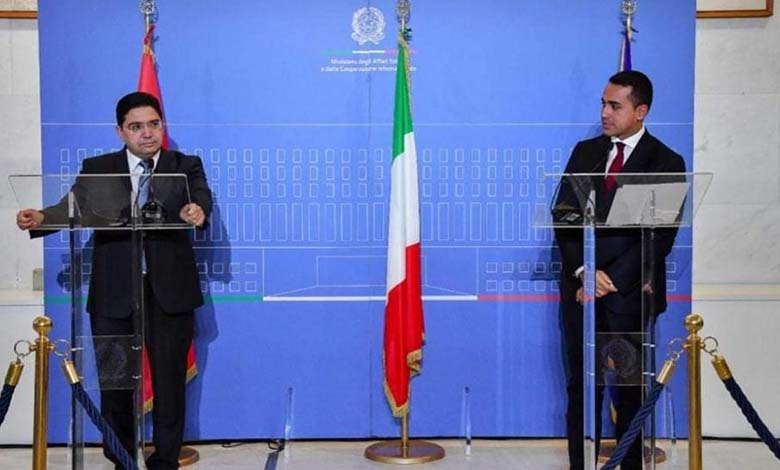Italy Seeks Broader Security Partnership with Morocco
Discussions between Rabat and Rome are focused on combating human trafficking, irregular migration, drug trafficking, money laundering, and criminal proceeds

On Monday, the Director General of Moroccan Security, Abdelatif Hammouchi, met with the Director General of the Italian Police, Vittorio Pisani, to discuss enhancing cooperation in the field of security and mechanisms to improve bilateral coordination, both in operational cooperation and in the exchange of expertise and technical assistance. Morocco is considered a key pillar in strengthening regional and international security, with increasing trust from European capitals, including Rome, in Moroccan security capabilities and expertise, which have proven highly effective with continuous development and modernization efforts.
The discussions took place during an unannounced working visit by Pisani to Rabat, heading a security delegation that began on Monday, according to a statement from the General Directorate of National Security.
According to the statement, the two sides reviewed various security threats and current international crises and their potential repercussions on the security of both countries.
They discussed “the risks of transnational crime, including human trafficking, the organization of irregular migration, illicit drug trafficking, money laundering, and criminal proceeds,” according to the statement.
The statement noted that the meeting “falls within the context of strengthening international security cooperation mechanisms with security agencies in friendly and brotherly countries, and activating bilateral and multilateral cooperation channels to neutralize terrorist threats and combat various forms of transnational crime.”
Moroccan authorities have significantly contributed in recent years to addressing many phenomena affecting the security of northern Mediterranean countries, such as irregular migration, terrorism, and human trafficking networks, which the Italian side greatly appreciated.
The issue of irregular migration is one of the most pressing concerns for the Italian government and Prime Minister Giorgia Meloni, who has promised her voters to find solutions to the crisis. The Moroccan model in dealing with this phenomenon is among the examples that can be followed to combat human trafficking networks.
Rabat insists on the necessity of combining security, social, and developmental solutions to address irregular migrants, calling for giving hope to Africans and encouraging them to improve their economic and social conditions in their countries, not just relying on security solutions.
Rome has sought to strengthen cooperation with Rabat in various fields, praising the level of development, growth, and stability achieved by the kingdom in recent years under the leadership of King Mohammed VI. The Italian-Moroccan relations are at their best phase.
Italian Deputy Minister of Foreign Affairs, Edmondo Cirielli, stated in previous remarks in April that Morocco is “an exceptional partner in all fields,” noting that the quality of this partnership has encouraged many Italian companies to establish themselves in the kingdom as part of the internationalization of their activities, and has motivated the choice of Morocco among the priority countries to benefit from the Mattei Plan.
-
Morocco Strengthens Its Military Industry with Various Types of Drones
-
Security Talks Enhance Partnership Between Morocco and Spain
Meloni had announced a multi-billion dollar investment plan to expand Rome’s influence in African countries, aiming to reduce irregular migration, called the Mattei Plan.
Rome is seeking significant investment opportunities in Morocco, showing great interest in renewable energies, a move revealed by Moroccan Prime Minister Aziz Akhannouch on the sidelines of the “Italy-Africa: A Bridge for Shared Growth” summit held in Rome earlier this year.
Many observers believe that Italian-Moroccan relations are at their best phase, with expectations from both peoples for further deepening of these relations.












